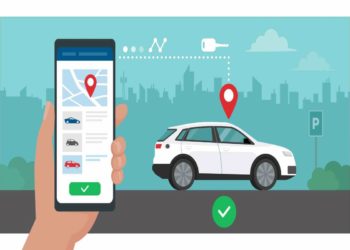Road trips are great ways to vacation with your loved ones. You can plan everything down to the smallest detail to maximize your experiences and see the country.
However, it also means you’ll spend more time in your vehicle and be at risk for dangerous situations. Use these tips to stay safe while driving cross-country any time of the year.
Table of Contents
1. Map Your Route
Many people use GPS apps to guide them around town, but you may not have cell reception throughout the country. Your phone could also lose power when you need it most. Printing a copy of your route before leaving home is always a good idea.
You can also stock up on maps. Once you know your destinations, order an atlas and local maps for each town you visit. The maps have more updated insight into small areas, while an atlas will give you national directions anywhere you want to go.
2. Rotate Your Tires
Consider the last time you rotated your tires. If it was more than a few months ago, they’ve been rolling across roads and highways on the same pressure points. Your car’s weight and passenger distribution affect how much of the tread wears off on pavement, plus other factors like if your tires have proper inflation.
Worn treads create less grip on the pavement, making you more likely to lose traction when driving on wet or frozen roads. Experts advise drivers to rotate their tires every 6,000-8,000 miles, but rotating them before a long trip is also a good idea. You’ll maximize the wear and tear on their treads, so your tires aren’t at risk of popping during your vacation.
3. Check Your Tire Inflation
Your tires need a specific pound-per-square-inch (PSI) inflation rate to maximize their life. You can find the number on your car’s driver doorframe or within its manual. Check your tires with a pressure monitor before leaving home and fill up at a local gas station if they’re too low.
Your car will likely take you to multiple hotels and drive through various climates. The usage and temperature changes might cause your tires to deflate faster than at home. Monitor their inflation throughout your trip to refill as needed. You’ll avoid a tire popping on the highway or uneven treads from ruining one or more of them.
4. Keep Valuables on Your Person
Although it might be tempting to leave a few things in the car while road-tripping, it makes it more of a target for theft. People hoping to make a few dollars off stolen goods often look for valuable vehicles people rent specifically for vacationing. They also check seats, footwells and door pockets for belongings. Bring everything with you when leaving your car or store things out of sight in your trunk.
5. Create an Emergency Medical Kit
You never know what might happen on the road, so don’t leave home without an emergency medical kit. They’re available at stores and are also easy to make yourself. Include bandages, antibiotic ointment and gauze to respond to emergencies if they arise.
6. Prepare for Various Weather Conditions
Hot coastal climates and snowy mountain getaways are fun, but your car could break down in any weather. Always keep emergency supplies on hand for road trips. Extra blankets and water bottles will keep your loved ones comfortable if you need to wait for a tow truck. An external battery with phone chargers could also save the day if you get stranded.
7. Keep Your Energy Up
The lack of movement from sitting in the driver’s seat for hours might cause your mind to drift off. Pack a few caffeinated beverages for those moments or designate a secondary driver. You could also pick a conversation buddy to keep you awake, along with podcast episodes or songs you find most interesting.
8. Make Snack Bags
Snacks and meals will restore your energy when you get hungry on the road. They’ll also reduce how often you have to eat junk food that makes you sleepy. Pack a few items for everyone on your road trip. Whenever you stop for food, you’ll have more money left in your budget for one-of-a-kind culinary experiences at locally-owned restaurants.
9. Watch Health Reports
Watching for local health reports before driving into new towns is always wise. You’ll know if flu strains or viruses are at their peak at your destinations. You and your loved ones can wear masks and wash your hands more frequently to protect your health away from home.
10. Avoid an Empty Gas Tank
You might not think about filling up your gas tank until the empty light turns on, but that’s simple to fix when driving around your hometown. During a road trip, you might spend time on a stretch of highway without a gas station nearby.
Remember to refill your tank whenever it gets less than half full to avoid running out of gas in an isolated area. You might also want to check for stations between stops to know precisely where you’ll fill up next.
Stay Safe During Road Trips
Staying safe while driving cross-country isn’t challenging when you have tips like these. Outsmart potential emergencies with strategies like packing food, bringing a medical emergency kit and never letting your gas tank get too low. You’ll have a great time on your upcoming vacation without worrying about what could go wrong.














